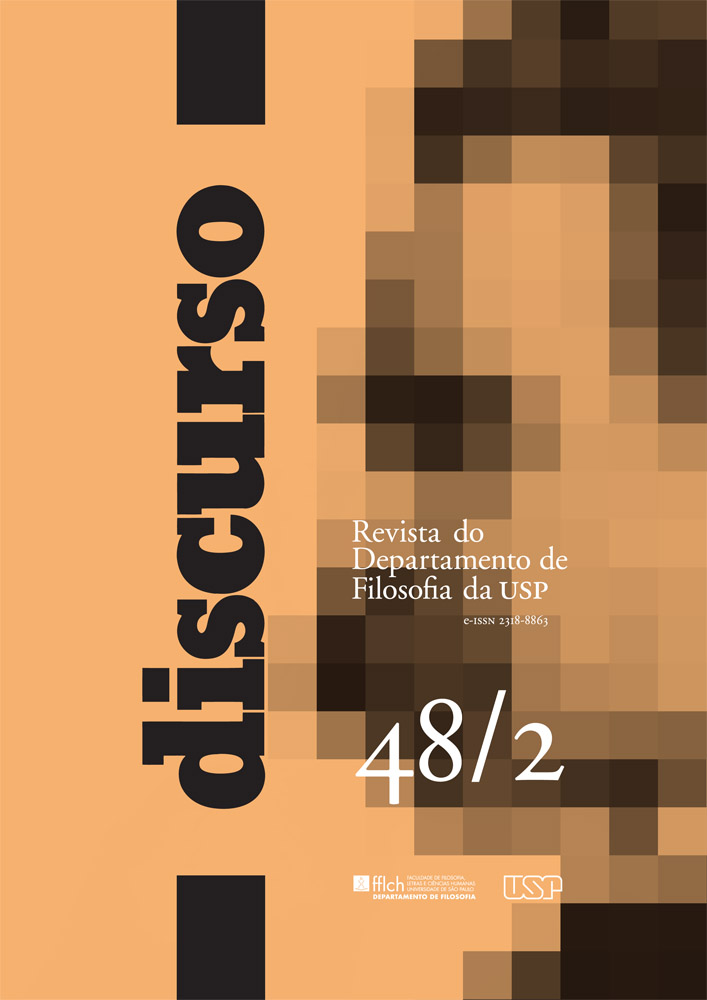Sub specie saeculi, sub specie aeterni: Time and Eternity in Young Nietzsche
DOI:
https://doi.org/10.11606/issn.2318-8863.discurso.2018.150909Keywords:
Time, Eternity, Language, Art, MythAbstract
For the Young Nietzsche, modernity sets the beginning of the decline of western culture, by virtue of the glorification of knowledge. This aspect causes the seclusion of modern man in a realistic perspective, unable to free himself from the constraint inflicted by the becoming. To revert this condemnation imposed on culture by Socratism, it is necessary to restitute Art’s rights, since only art enables the recovery of the bond with eternity, giving men the means to protect himself from the effects of time. This happens especially in the music realm, either in its Apollonian aspect (rhythm) or in its Dyonisian (harmonic) one, in that the supremacy of appearances before art is weakened.
Key Words
Time; Eternity; Language; Art; Myth.
Downloads
Downloads
Published
Issue
Section
License
O trabalho da Discurso foi licenciado com uma Licença Creative Commons Attribution-NonCommercial-ShareAlike 4.0 International.
Os autores aqui publicados mantém os direitos sobre seus artigos
De acordo com os termos seguintes:
-
Atribuição [BY] — Deve-se dar o crédito apropriado, prover um link para a licença e indicar se mudanças foram feitas.
-
NãoComercial [NC] — É proibido o uso deste material para fins comerciais.
-
CompartilhaIgual [SA] — Caso haja remixagem, transformação ou criação a partir do material, é necessário distribuir as suas contribuições sob a mesma licença que o original.




